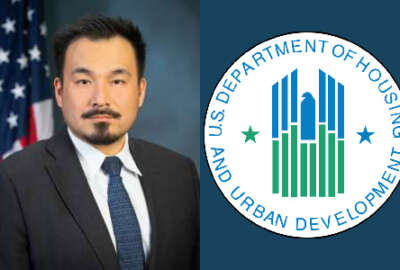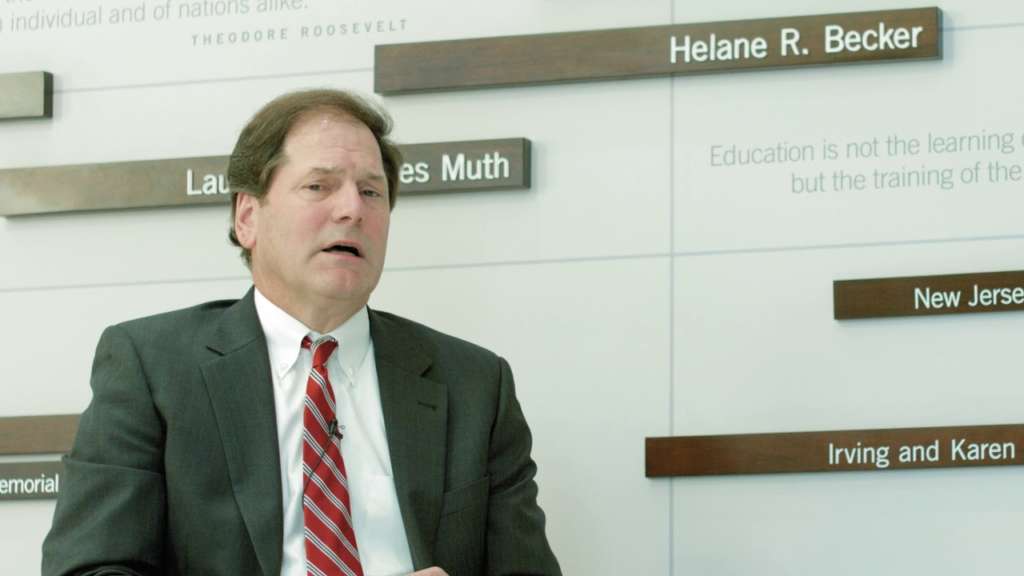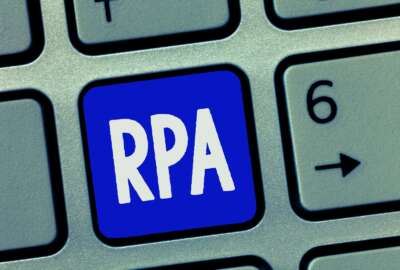

Irv Dennis, the CFO of the Department of Housing and Urban Development, said the data analytics portion of the Centers of Excellence effort is helping to transf...
For the most part, agency chief information officers are leading the administration’s Centers of Excellence IT modernization initiatives at each of the three agencies that are taking part so far.
But that’s not necessarily the case at the Department of Housing and Urban Development. HUD’s CFO Irv Dennis is an equal partner and using the CoEs as a way to break down long-standing siloes that have created obstacles to previous IT modernization efforts.

Dennis said he saw the problems with the IT systems first hand when he arrived at HUD about 18 months ago.
“I was mildly warned and very surprised when I got here about the state of HUD’s financial management systems,” Dennis said on Ask the CIO. “We had 11 material weaknesses and seven significant deficiencies in the financial statements. I spent my first three months assessing people, process and technology. We have a lot of great people at HUD, but we also have some very broken processes and very dated technology. So we put a finance transformation in place to focus on those 11 areas that are broken within the financial systems and the significant deficiencies.”
The CoEs are playing a big part in fixing HUD’s financial management challenges with Dennis’s team taking the on the data analytics part of the effort.
“We are putting some governance structure around data analytics and where the data fits within HUD and which different systems. We will be searching for a chief data analytics officers,” he said. “The best way to think of this is finding where all of the data is, assess what systems they sit in and move that data into a centralized data warehouse. Then, within that data warehouse, we can extract that information and put it into a development dashboard that we can easily have access to on our iPad or iPhone.”
HUD became the second agency, after the Agriculture Department, to use the CoE approach to modernize systems and processes across five areas:
In May, HUD moved to the latter stages of phase 1 and began planning for phase 2 where it and the General Services Administration released requests for information and draft request for quotes help across six areas, including three data analytics areas that Dennis and his team are leading. The agency expects to issue final RFQs later this fall.
HUD has not yet named a permanent chief data analytics, or chief data officer. Sairah Ijaz is filling that role on an acting basis.
Dennis said HUD isn’t starting from ground zero when it comes to data analytics. He said one of the program offices has developed a data dashboard and will expand that technology.
“The trick right now is to get all of our key data in the other programs and our systems into this data warehouse, and then leverage our existing dashboard and build from there,” he said. “The data governance structure is so important to make sure we are getting the right data from the right systems in the right format that is usable in the data warehouse. When you think about the governance structure around anything you do to automate, the number one thing you have to do is make sure you are getting good, clean, verifiable and accurate data. It all starts with data governance.”
And that governance becomes even more important as the CFO’s office begins to implement robotics process automation (RPA).
Dennis said during his initial review of HUD’s technology and processes, he realized how the CFO’s office still relied on a lot of manual processes. As part of his overall strategy to modernize the agency’s financial management systems and process, Dennis oversaw a pilot to use RPA.
“We selected a grant accrual process that took us about 2,100 hours over six months to complete that process as it relates to the financial close process. With robotics we reduced it down to 65 hours and took it down from six months to three weeks. Not only are we more efficient but we are actually more effective,” he said. “I challenged our team to identify other areas where we could implement robotics. We identified over 55,000 hours within the CFO office and we put in place a two-year plan to make all of that happen.”
Dennis added that RPA also lets his team focus on higher value work such as data analysis instead of the more mundane transactional work. He said the CFO’s office has about 30 processes that require about 55,000 hours to complete that are candidates for RPA. He said another seven or eight processes will be moved to robotics and automation by the end of fiscal 2019.
“This is not about job elimination. I want our folks to be motivated with this. We have a lot of folks who work a lot of overtime. This is about creating efficiencies and effectiveness to free our folks up to focus on the value add that will be more helpful to the agency,” he said. “I’m really excited about this initiative. I would conservatively think we have 600,000 to 700,000 hours of manual processes that we could convert to robotics within all the programs at HUD. That will be a big focus of ours over the next year or two to identify those processes and go through the implementation.”
And that is why Dennis is so involved in the CoE initiatives.
Dennis said the data analytics effort will help HUD leadership make better decisions and be more predictive.
He said the CFO’s office also is part of the customer experience and call efforts under the CoE. The agency will hire a chief customer experience officer in the coming months.
“Our call centers are complicated. I think we have over 100 numbers and six different call centers,” Dennis said. “Our FHA business has what I’d consider state of the art. The idea is to leverage Federal Housing Authority or look at a different structure. The goal is to get down to one call center and one number so no matter who we serve can call one number and get to the right answer.”
Copyright © 2024 Federal News Network. All rights reserved. This website is not intended for users located within the European Economic Area.
Jason Miller is executive editor of Federal News Network and directs news coverage on the people, policy and programs of the federal government.
Follow @jmillerWFED



